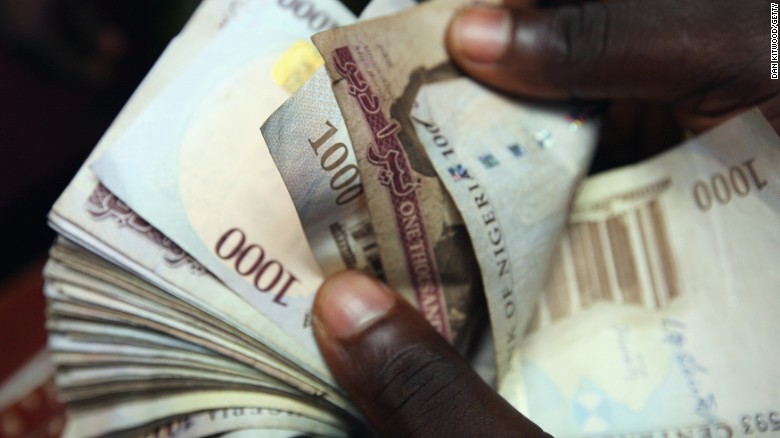Nigeria’s economy attracted a total foreign exchange inflow of $30.45bn between October and December 2017, figures obtained from the Central Bank of Nigeria have revealed.
The amount is contained in the CBN economic report for the fourth quarter of 2017, a copy of which was obtained by our correspondent on Friday in Abuja.
The foreign exchange inflow of $30.45bn is an increase of 14.5 per cent over what was recorded in the third quarter of 2017.
The apex bank attributed the increase in foreign exchange inflow to 22.7 per cent and 7.7 per cent rise in inflow through the CBN and autonomous sources, respectively.
For instance, the CBN said the oil sector receipts, which accounted for 10.6 per cent of the total foreign exchange inflow, were $3.23bn in the last three months of 2017, compared with $3.17bn and $1.97bn in the third quarter of 2017 and the corresponding period of 2016, respectively.
The report put the non-oil public sector inflow at $11.48bn, representing 7.7 per cent of the total inflow.
It said the non-oil foreign exchange inflow of $11.48bn rose by 30.3 per cent above the level at the end of the third quarter of 2017.
Autonomous inflow was put at $15.74bn, representing an increase of 7.7 per cent above the third quarter figure.
Inflow from autonomous sources, the report added, accounted for 51.7 per cent of the total foreign exchange receipts.
In terms of outflow, the report stated that the restrictive policies of the apex bank resulted into a decline of 9.6 per cent in outflow to $9.19bn.
It added, “At $9.19bn, aggregate foreign exchange outflow from the economy fell by 9.6 per cent below the level in the preceding quarter, but represented 69.9 per cent increase over the level in the corresponding period of 2016.
“The development, relative to the preceding quarter, was driven by 10.3 per cent and 2.0 per cent decline in outflow through the CBN and autonomous sources, respectively.
“Thus, foreign exchange flows through the economy resulted in a net inflow of $21.26bn in the review quarter, compared with $16.42bn and $10.88bn in the third quarter of 2017 and the corresponding period of 2016, respectively.”
The Executive Director/Chief Executive Officer, Nigerian Export Promotion Council, Mr. Segun Awolowo, said if the country could effectively key into the zero-oil plan of the agency in taking advantage of the opportunities in the agricultural sector, there would not be any need to depend on oil revenue for foreign exchange inflow.
Through the plan, he said the NEPC had identified 22 priority countries as markets for Nigerian products, while 11 strategic products with high financial value had also been identified to replace oil.
The products are palm oil, cashew, cocoa, soya beans, rubber, rice, petrochemical, leather, ginger, cotton and Shea butter
Awolowo stated that the volatility in the oil market had made it imperative for the government to look inwards, adding that Nigeria could no longer depend solely on oil revenue to boost foreign exchange supply.
For instance, the NEPC boss said between 2014 and 2016, the country recorded a total oil revenue shortfall of $40bn.
He stated that in 2014, the country earned $70bn from crude oil, adding that oil receipts dropped to $40bn and $30bn in 2015 and 2016, respectively.
As a result of the volatile nature of the oil market, he noted that the country could no longer depend on such commodity hence the need to partner Nigerians in the Diaspora to diversify the economy.
Awolowo stated, “In 2014, we had $70bn from oil; in 2015, it was $40bn; and you can see that we had a shortfall of $30bn.
“In 2016, it was about $30bn and so we can see that the challenge is not on really the demand for foreign exchange but the supply of foreign exchange.
“We are targeting manufacturing and industry so that we can produce and export more.”
He expressed optimism that the plan could have been achieved if all stakeholders collaborate with the NEPC, noting that the ultimate goal of the agency was for Nigeria to survive in a world where it would no longer sell oil.


